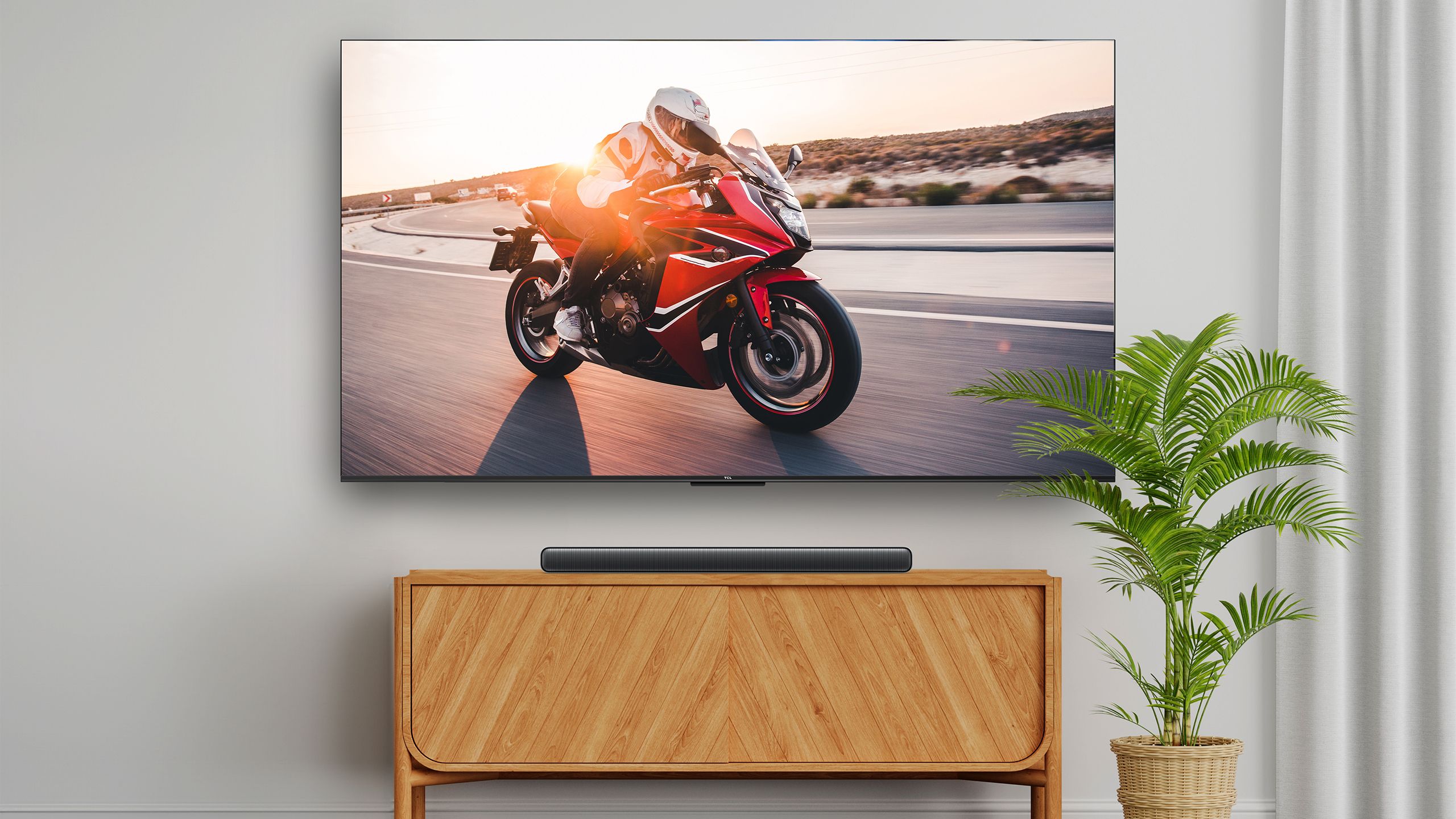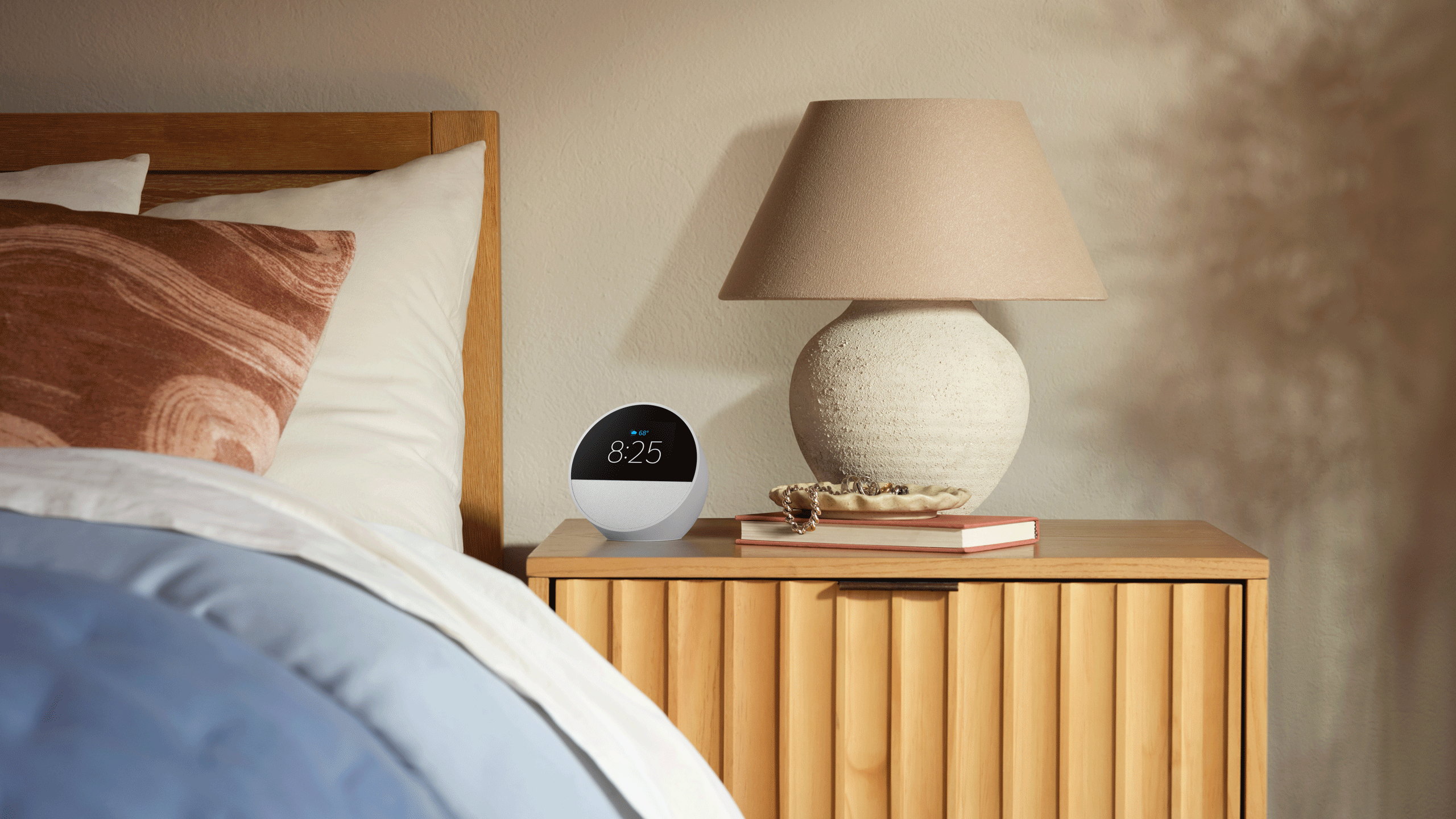Summary
- For some people, a bedroom TV may be the best or only way they can wind down at night, or watch a long movie.
- There are risks to having one, however, such as interference with sleep patterns or your relationships.
- If you do buy one, you’ll need to exercise some self-discipline about what you watch, how you watch it, and when you go to sleep.
I used to be against putting
TVs
in my bedroom, with or without a partner. Mostly, though, that was out of habit. While I liked having something playing to help me fall asleep, music and podcasts were generally enough, and often preferable. The closest I got to TV shows was tuning my AM/FM radio as far as I could to the left, which let me listen to audio from a local TV station back in the analog days. If I was lucky, I’d fall asleep to old Barney Miller episodes.
My wife helped change my opinion on that, and now I feel a little strange if there isn’t a TV available, or at least something TV-like, even if it’s just my
iPhone
or a
smart display
. Your mileage is going to vary, so it’s a legitimate question — should you put a TV in your bedroom? There are benefits and downsides, some of which you may not have thought of.
Related
4 tips for falling asleep to YouTube like a pro
YouTube can actually be helpful for falling asleep instead of harmful, as long as you know what you’re doing.
The pros of a bedroom TV
It’s not just about late-night comedy
TCL
Some people wind down best by watching TV, often with their partner. Really, that’s what late-night talk shows were created for — most people aren’t checking out Stephen Colbert or The Daily Show just before they head out to an EDM concert. The right shows can be a way of bonding with a partner, or simply reducing anxiety, which is all too common in the modern world.
Even if you don’t use a TV to wind down, though, your bedroom can often be the most comfortable place to watch something, be it YouTube videos, the news, or a sprawling fantasy epic. Indeed, some people just can’t fathom watching a three-hour movie on their couch, no matter how many snacks they have. I prefer being on a couch, myself, but that’s something I’ll get to in the next section.
One advantage people sometimes miss is the ability to put on ambient sounds and visuals, like that one “forest” scene from the Director’s Cut of Aliens. There are quite a few YouTube channels specializing in this, my personal favorite being Nomadic Ambience. That’s because it doesn’t use CG imagery or sound loops — it’s real content from real places, whether that means an Icelandic waterfall or a Tokyo cityscape. If our son is ever scared and sleeping in our room, putting on a rainstorm video will help him fall asleep in minutes. Sometimes I need that, too.
One advantage people sometimes miss is the ability to put on ambient sounds and visuals.
Along similar lines, a TV can double as a music player if you don’t have a dedicated stereo system. There’s even a good chance it can double as a smart speaker, letting you ask questions, adjust smart home accessories, and check security cameras without pulling out your phone. Some people do have privacy concerns about voice assistants, but those can usually be addressed by limiting commands to your remote control.
A bedroom TV may be almost mandatory if you’re sick or injured for a long time. Sure, there are other ways of passing the hours — games, reading, or just trying to sleep whenever possible — but those don’t always work. If you’ve just spent two hours playing Control on your
Steam Deck
, watching an episode of The Righteous Gemstones may be a welcome change of pace.

Related
Here’s how I built a Matter smart home
Matter can make your smart home seamless — these are the things you need to get started.
The cons of bedroom TVs
Don’t disrupt your sleep
The biggest issue is, of course, the potential impact on your sleep schedule. Exciting or disturbing TV content can make it difficult to wind down enough, leading to fewer hours of sleep, which makes it tough to get through work or school the next day. My own schedule is especially sleep-sensitive — on top of writing for eight or nine hours every weekday, my main hobby is weightlifting. Whether I stay up late can mean the difference between complete exhaustion or maxing out deadlifts with energy to spare.
You can roll over and try to sleep with a TV still going, but then it becomes vital to crank the sound and brightness down to reasonable levels. For some people, no level is going to be reasonable — an active TV is still going to keep them awake. That’s why I prefer watching bedtime videos on my Nest Hub instead of the TV, since all I have to do to make things pitch black or a little quieter is roll over in the opposite direction.

Related
I created my own free streaming service and now I can watch anything I want
Watch what you want, when you want, without licensing getting in the way.
The biggest issue is, of course, the potential impact on your sleep schedule.
In a relationship, a TV can potentially manufacture problems as well as solve them. You risk ruining your partner’s sleep, not just yours, and there’s the potential for fights or resentment not just over that, but over who gets to watch what and when. Healthy relationships require active engagement by both people.
Personally, watching movies in the bedroom often feels wrong from a cinephile’s perspective. I prefer to make movies an event, which means choosing the biggest screen with the best sound, and as few distractions as possible except for snacks and sodas. I can enjoy a bedroom movie — don’t get me wrong. But if I’ve just rented Dune: Part Two, for example, I’m going to feel shortchanged by watching it on a smaller bedroom screen with a pile of unfolded laundry a few feet away.

Google Nest Hub (2nd Gen)
$80 $100 Save
$20
The Google Nest Hub (2nd generation) is an excellent smart display with all the same features as the original, along with some extras, like gestures, sleep tracking and audio improvements.
What’s the ultimate verdict?
It may be up to your self-control
Amazon
My own inclination is to recommend against installing a bedroom TV if it’s not already a part of your life. Aside from saving money, you’ll likely preserve healthier sleep habits, not to mention a better relationship with your partner if you have one. Just make sure that any late-night bonding involves fun or learning about each other — you’re going to produce stress if you try to sort out personal or financial problems when your partner only wants to get some rest.
TV viewing can exist in a healthy context. Simply be careful about what you watch at the end of the day, and set a hard limit for when it’s time to roll over and sleep. If you decide to keep your TV on overnight, keep the volume and brightness low enough that no one will be startled awake.
Ultimately, if you do get a TV, you can always make a conscious decision to leave it off if it’s creating issues. If it becomes a bad habit, it could be that you need to work on self-discipline — not so much on finding better shows to watch.

You might also like
Everything you need to know about PEVs, or personal electric vehicles
You can use PEVs to explore, run errands, or speed up your commute.
Trending Products

Logitech MK470 Slim Wireless Keyboard and Mouse Co...

Wireless Keyboard and Mouse Combo, 2.4G Silent Cor...

HP 17.3″ FHD Business Laptop 2024, 32GB RAM,...

Wireless Keyboard and Mouse Ultra Slim Combo, TopM...














